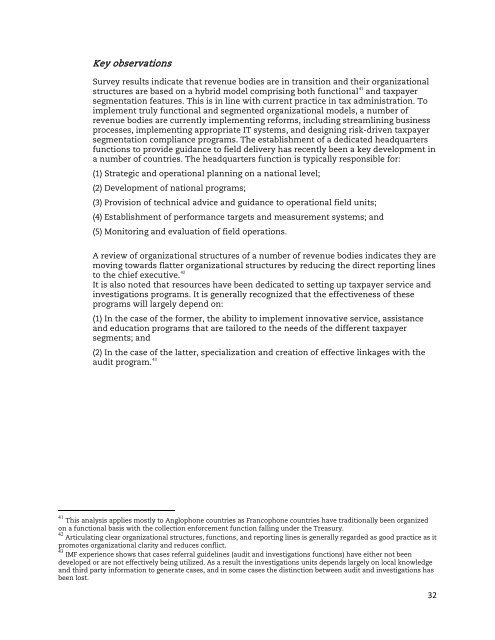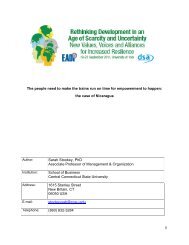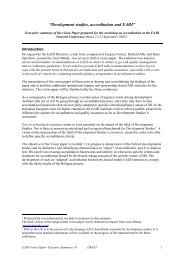Revenue Administration in Sub-Saharan Africa - International Tax ...
Revenue Administration in Sub-Saharan Africa - International Tax ...
Revenue Administration in Sub-Saharan Africa - International Tax ...
Create successful ePaper yourself
Turn your PDF publications into a flip-book with our unique Google optimized e-Paper software.
Key observationsSurvey results <strong>in</strong>dicate that revenue bodies are <strong>in</strong> transition and their organizationalstructures are based on a hybrid model compris<strong>in</strong>g both functional 41and taxpayersegmentation features. This is <strong>in</strong> l<strong>in</strong>e with current practice <strong>in</strong> tax adm<strong>in</strong>istration. Toimplement truly functional and segmented organizational models, a number ofrevenue bodies are currently implement<strong>in</strong>g reforms, <strong>in</strong>clud<strong>in</strong>g streaml<strong>in</strong><strong>in</strong>g bus<strong>in</strong>essprocesses, implement<strong>in</strong>g appropriate IT systems, and design<strong>in</strong>g risk-driven taxpayersegmentation compliance programs. The establishment of a dedicated headquartersfunctions to provide guidance to field delivery has recently been a key development <strong>in</strong>a number of countries. The headquarters function is typically responsible for:(1) Strategic and operational plann<strong>in</strong>g on a national level;(2) Development of national programs;(3) Provision of technical advice and guidance to operational field units;(4) Establishment of performance targets and measurement systems; and(5) Monitor<strong>in</strong>g and evaluation of field operations.A review of organizational structures of a number of revenue bodies <strong>in</strong>dicates they aremov<strong>in</strong>g towards flatter organizational structures by reduc<strong>in</strong>g the direct report<strong>in</strong>g l<strong>in</strong>esto the chief executive. 42It is also noted that resources have been dedicated to sett<strong>in</strong>g up taxpayer service and<strong>in</strong>vestigations programs. It is generally recognized that the effectiveness of theseprograms will largely depend on:(1) In the case of the former, the ability to implement <strong>in</strong>novative service, assistanceand education programs that are tailored to the needs of the different taxpayersegments; and(2) In the case of the latter, specialization and creation of effective l<strong>in</strong>kages with theaudit program. 4341 This analysis applies mostly to Anglophone countries as Francophone countries have traditionally been organizedon a functional basis with the collection enforcement function fall<strong>in</strong>g under the Treasury.42 Articulat<strong>in</strong>g clear organizational structures, functions, and report<strong>in</strong>g l<strong>in</strong>es is generally regarded as good practice as itpromotes organizational clarity and reduces conflict.43 IMF experience shows that cases referral guidel<strong>in</strong>es (audit and <strong>in</strong>vestigations functions) have either not beendeveloped or are not effectively be<strong>in</strong>g utilized. As a result the <strong>in</strong>vestigations units depends largely on local knowledgeand third party <strong>in</strong>formation to generate cases, and <strong>in</strong> some cases the dist<strong>in</strong>ction between audit and <strong>in</strong>vestigations hasbeen lost.32





